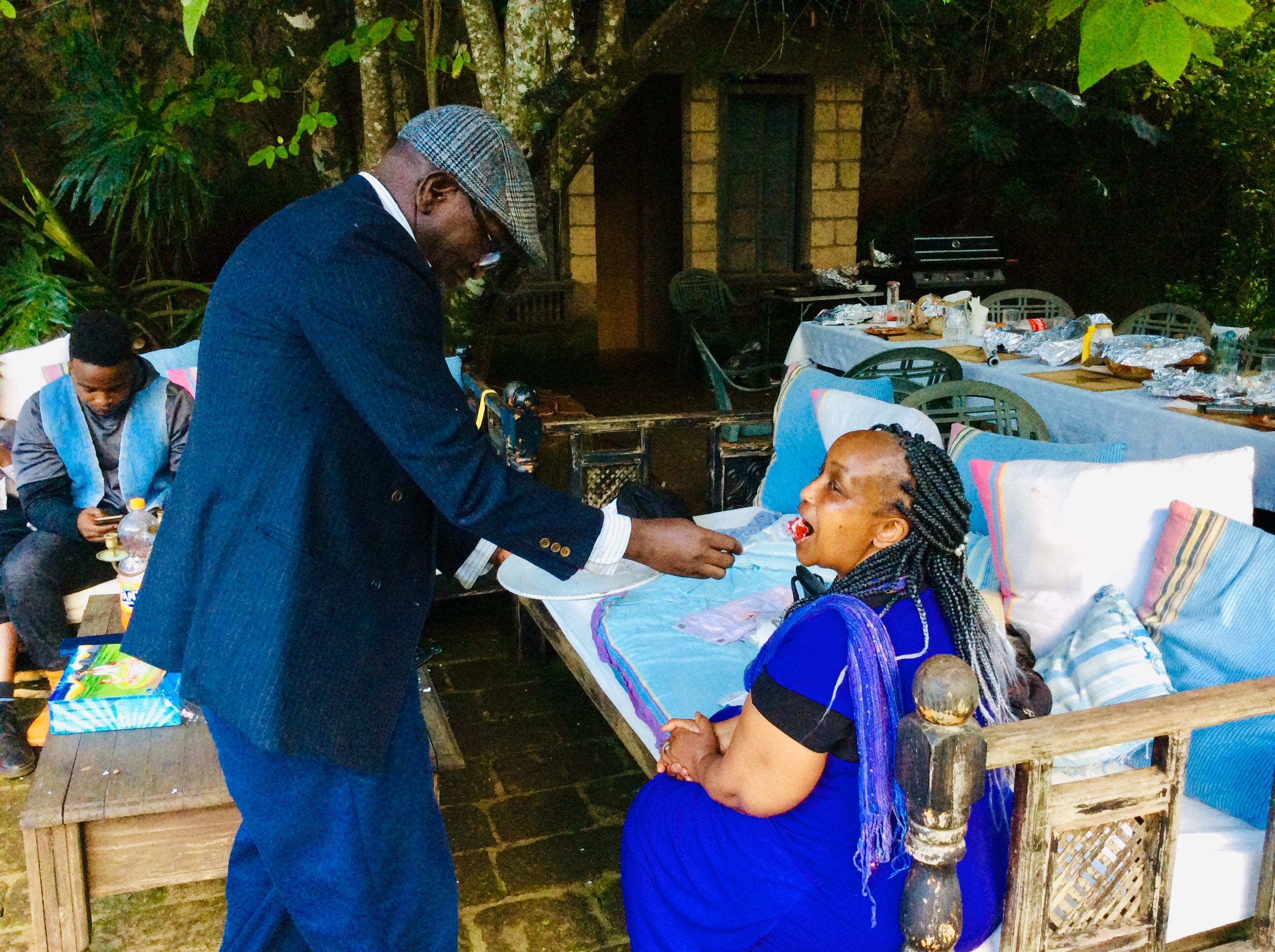It started with her, dieting, fasting, and before long, it spilled over to me.
Be Honest: Belly Fat Isn’t Healthy
Let’s face it, men, sometimes we think we’re fine just because we can still go to work, walk around, or share a laugh with friends.
People often told me I looked “well” and “okay.” Fat and chubby, yes, but “healthy”? Not at all. Behind the smile, I was overweight, constantly tired, and I now suspect I was hovering on the edge of pre-diabetes.
Looking back, my body was sending warning after warning: swollen feet, a constant sour stomach, and even those dreaded prostate symptoms: frequent urination and poor bladder control. That was terrifying.
I blamed it on age. Everyone said it was just the “midlife crisis” setting in.
But the truth? I wasn’t just getting older; I was getting unhealthy, thanks to my eating habits and lifestyle.
Today, I know better. And I’m in a better form.
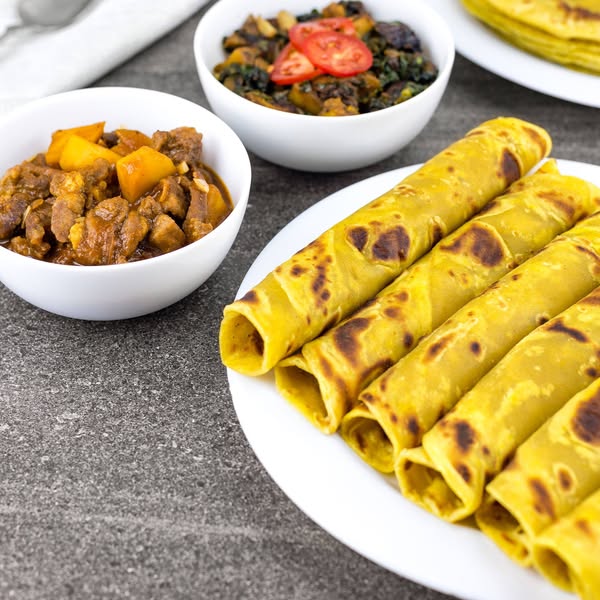
The Real Culprit? Our Beloved Modern Diet
I was addicted to foods many Kenyan men love: chapati, ugali, rice, mandazi, chips, on rotation. They called it balancing the diet.
We cooked everything with seed oils. We loved our tea, which was served in mugs, loaded with milk and spoonfuls of sugar, several times a day.
I was a celebrated teetotaller, but I realise now that it was pushing me to the edge of metabolic disaster.
And no one told me that even “good” food can make you sick when taken the wrong way. Read more on the hidden dangers of seed oils

Then She Came on Stage: The Homegrown Health Coach (a.k.a. My Wife)
Then the lady in my life, my wife, put her foot down.
“No more sugar. No more starch. No more seed oils,” she said. I did not stop everything all at once. She tolerated my stubbornness for a while.
Some changes came faster because she was the one in control.
Instead of seed oils and margarine, she introduced tallow (animal fat) for cooking and replaced our entire pantry. Ugali and rice gave way to pumpkins, green bananas, sweet potatoes, and other complex carbs. They are much healthier than conventional grains. Read more “Taking Diabetes Medication? Here’s What You Need to Know About Diet and No-Go Foods”
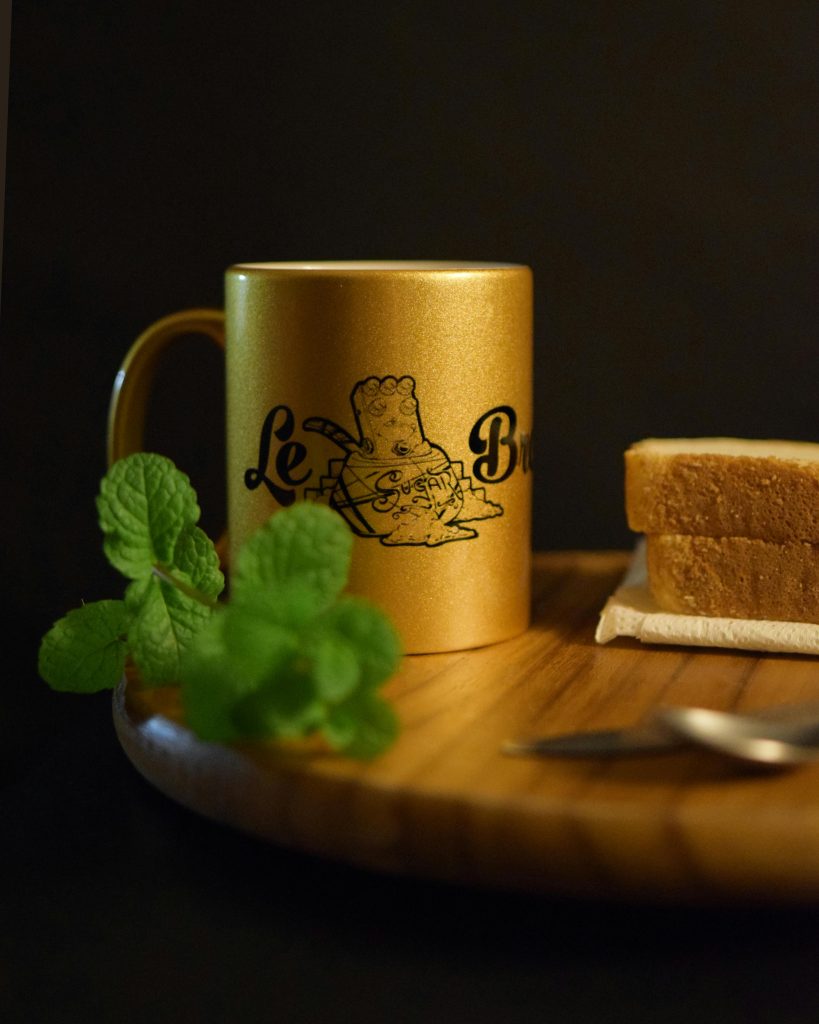
No More Chai na Mkate?
That hit hard and took the longest to change. In most Kenyan homes, chai na mkate (tea and bread) is a sacred morning ritual. It is insolent to visit a relative without a kilo of sugar as a token of this ritual. Kenyan’s know it.
But milk, she said, is high in sugar (especially when boiled), and sugar itself had to go, and it did, quite unceremoniously.
She kept saying it day after day with comments and gestures (call it nagging, boys), until my stubbornness wore out. After toil and labor, I made a promise to her, and it stuck.
So my sweet cup of tea had to be retired, na mpenzi wake, mkate (with her close companion, bread).

Healing the Gut
My gut was bad. She said I had something called IBS, or simply, Irritable Bowel Syndrome. I knew it.
A lot of soreness in the stomach, indigestion, and stomach runs that kept recurring despite all the meds I used. Some troubles I had been bothered with for years.
My journey to heal the gut began with sourness.
She introduced fermented foods, sour cabbage (sourkraut), sour milk (kefir), or fermented milk (we call it mursik in my community).
I was skeptical at first, but my gut loved it. Science backs her up that fermented foods are proven to reduce inflammation and heal gut flora. Explore fermented foods and gut health: Why is gut health so important?
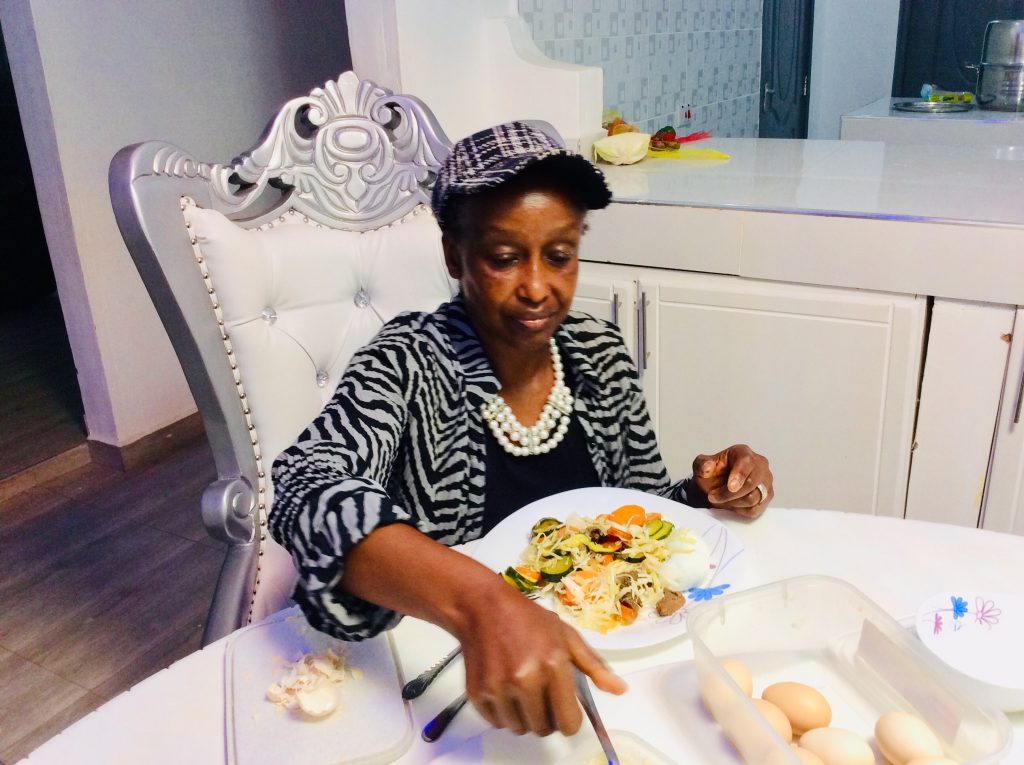
Intermittent Fasting: The Game Changer
She had started intermittent fasting herself, and she liked it. Sometimes fasting for 24 hours (a one-meal-a-day ritual).
She told me that I was eating far too often. We counted the meals:
Morning, chai na Mkate. Every sweetjunkies delicacy.
Then Chai na keki or mandazi for morning break.
Then a heavy lunch, followed by afternoon tea or coffee.
Another cup of tea before supper, and then supper. Sometimes, another cup of tea before retiring.
Thinking now, that was a crazy rollercoaster of food and food, after food. She said that there was not enough acid to digest that much food, contributing to crisis after crisis of indigestion, acid reflux, and stomach runs.
“Give your stomach a break to digest what’s already been consumed. A body requires 6 to 8 hours to do this”. She affirmed.
Those were like five meals each day, spiking what she called insulin resistance, which leads to metabolic illnesses like weight gain, belly fat, diabetes, and bad heart health, among others.
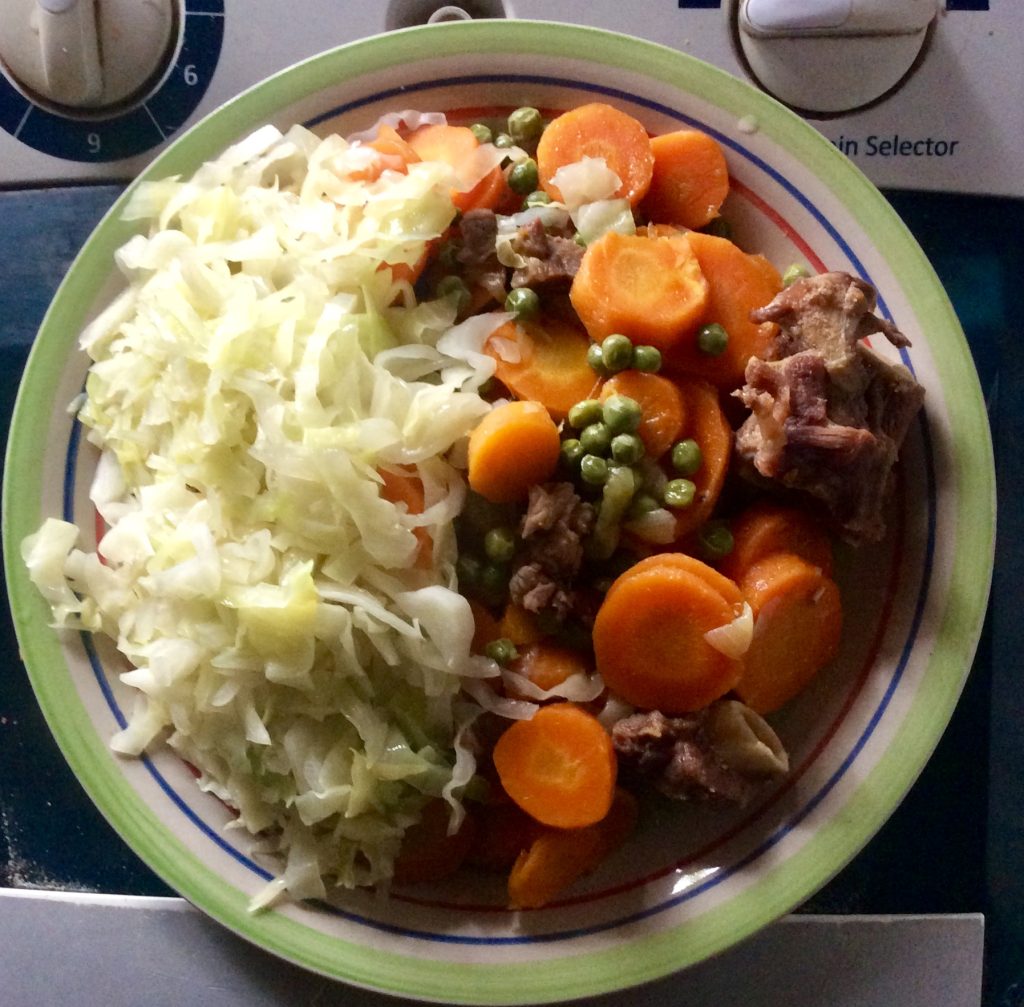
We dropped from five or more meals to two a day, fasting 12–14 hours overnight. No breakfast before 10 am. No snacks. No juice. No sweet tea. No fruits. No nothing.
Only water, and sometimes black coffee or plain tea; no milk, no sugar on coffees and teas, full stop!
I was worried I would starve, but she assured me. Eat enough of the right food to fill your tummy, and you won’t be hungry in between and won’t be tempted to snack.
So, we filled our plates with “real food,” as she had chosen. Carrots, cabbages, roots, broccoli, courgettes, and tubers. On my plate she added pumpkin, green bananas, chayode and avocado. For sure, the two meals a day were more than sufficient.
The result? Our insulin levels stabilized, energy improved, and weight began to drop. Learn more about intermittent fasting: Lose weight now, ask me how

The Ten Thousand Steps Walk
She didn’t stop there.
We committed to walking 5 km daily and 8–10 km once a week. She walked with me, even when I sulked and whined. Without her, I would’ve quit.
I owe her for standing by me with discipline and patience. She benefited immensely, too.
A Year Later: The Transformation
A year ago, my reflection told a story I didn’t want to hear: of stubborn belly fat, of nights interrupted by acid’s burn, of feet swollen like overfilled plastic tubes, of a bladder that refused to obey orders, and joints that groaned with every step.
Today, that chapter is closed.
The belly fat melted away like mist under the tropical sun. The acid’s fire in my belly has been gradually extinguished, not with antacids but with food and discipline.
My feet no longer carry the weight of swelling. She says that my kidneys are now healthier and do the job they are supposed to do. The bladder? Peacefully silent. Those urgent moments have been forgotten.
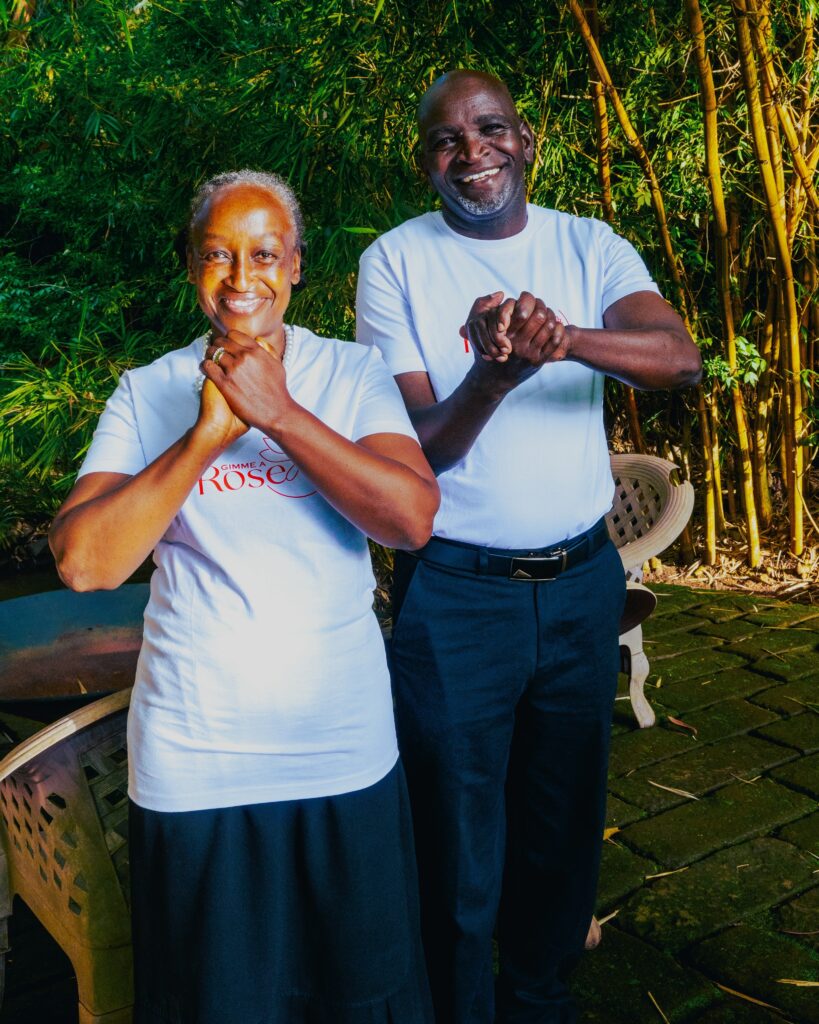
And my joints? They move in harmony, singing a new song, one of strength, freedom, and life reclaimed. Sometimes I feel young again and want to run a mile. But I am restrained. I know I am not.
It looks magical, but it’s true. I feel younger, stronger, leaner. Not just physically, but emotionally, and spiritually, too.
You ask, emotionally? Yes. A bad gut is a cause of most metabolic problems, including depression and heart disease. We are both emotionally strong and stable, and we thank God for our new way of life.
I didn’t count calories or obsess over the scale. But I could see and feel the change, and so could others.
For her, she celebrated her weight loss. Someone even mistook her for my daughter, and we laughed it off, but the truth be told, she shed 20+ kilos and glows like never before.

Men, Let’s Talk Health
Brothers, we’re often too proud, too stubborn, or too blind to see the warning signs. We hide behind phrases like “mwanaume ni kuvumilia.” But your body is talking, listen. Read more Your body tell-tales, listen
And to the women walking this journey with us, keep going. Your “nagging or maneno mingi” might just be what we need to save a life.
Mine did.
Kudos, Mama.

